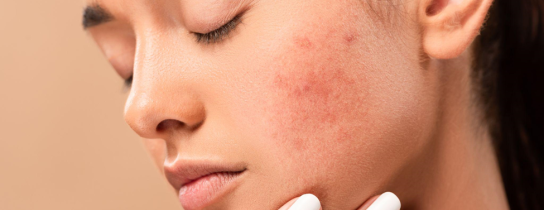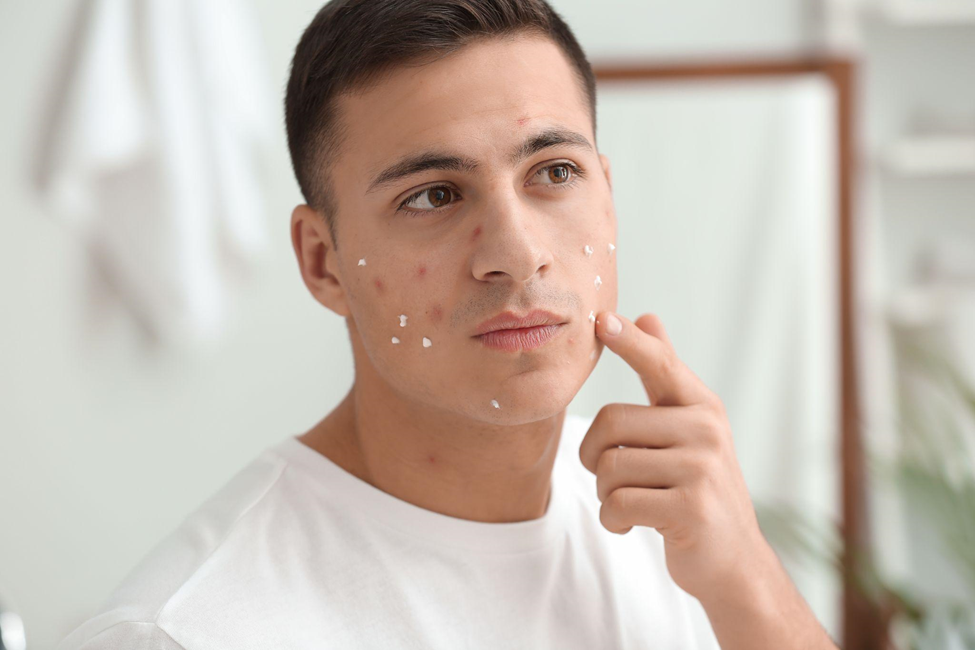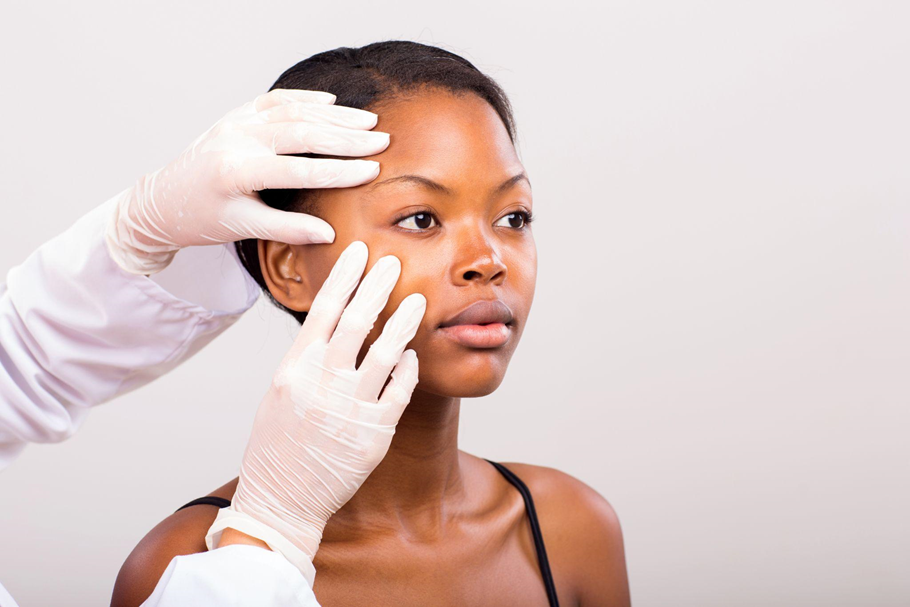
Everything You Need to Know About Acne
Acne can quickly become the bane of any teenager’s existence. Painful, inflamed cysts. Eye-catching pimples. For most adults, even mentioning their puberty-initiated onslaught of hormonal acne can make them shudder.
However, acne isn’t an age-dependent condition. Today, millions of people suffer from acne, regardless of age or gender. As many of us know, getting rid of acne can be a frustratingly slow process.
Thankfully, understanding what type of acne you may have and how a dermatologist, like the ones at Crystal Run Healthcare, can help are all excellent steps to take toward clear, healthy skin. We answer all your burning questions on acne, its causes, and the treatments available to you.
What Is Acne?
Acne, also known as Acne vulgaris, is a common skin condition that causes regular or long-lasting breakouts of pimples. These pimples are also known as whiteheads, blackheads, cysts, pustules, or zits.
While getting the occasional pimple isn’t cause for alarm, if you’re regularly breaking out, have several pimples at once, or keep getting zits in the same spots over and over again, you may have acne.
Symptoms of Acne
Acne symptoms can appear on the face, neck, shoulders, and upper back. These symptoms typically include:
- Regular or recurring breakouts
- Large, inflamed cysts
- Oozing or pus-filled spots
The most common “zits” associated with acne are:
- Blackheads: Clogged pores reach the skin’s surface and appear black because the air oxidizes the oil or sebum they contain.
- Whiteheads: Clogged follicles sit under the skin and produce a visible white bump.
- Papules: Small, reddish-pink bumps on the skin are caused by tiny inflamed lesions. They can be painful when touched.
- Pustules or pimples: Pustules are papules topped by pus-filled lesions that are red and inflamed at the base.
- Nodules: Large, solid lesions deep within the skin are very painful to touch.
- Cysts: The more painful version of nodules also ooze or contain white or yellow pus.
Unlike mild hormonal breakouts, acne is much more stubborn and may stick around for weeks, months, or even years. Acne usually doesn’t respond to over-the-counter breakout or zit creams, washes, or toners.
What Causes Acne?
Your skin has thousands of tiny holes called pores that allow sweat and oil to escape through your skin, which can help keep you cool and rid your body of toxins. However, these pores can sometimes get blocked by oil, dead skin cells, dirt, and bacteria. When this happens, you usually get a pimple at that spot.
With acne, however, it’s not just one or two pores getting clogged every now and then. It's several pores all over your upper body that get blocked and inflamed at the same time. This causes breakouts of pimples and blemishes, which are hallmarks of acne.
Who Gets Acne?
Everyone can get acne at any age. However, acne most commonly affects pubescent and post-pubescent teens and can last well into your late 20s. For most people, acne will clear up naturally by the time they turn 30. There are treatments that can help cure your acne much earlier, though.
Risk Factors for Acne
Although the direct cause of acne is blocked pores, some things can contribute to its development or make existing acne worse.
These include:
- Hormonal changes or imbalances, especially in women
- Picking at zits or pimples, which could spread bacteria and cause further breakouts
- Wearing dirty or old headgear like hats or helmets could transfer dirt or bacteria to your skin
- Air pollution could leave your skin covered in invisible dirt
- Using oily or greasy skin or hair products can clog your pores
- Stress can spike your cortisol hormone levels and cause breakouts
- Genetics
- Certain medications
Types of Acne
Not everyone’s acne is the same, and understanding what type of acne you have can help you make the right choices when it comes to treatment.
Cystic Acne
Cystic acne is the most severe form of the condition and can cause extremely painful, pus-filled lesions across your skin. Cystic acne is most common in people with oily skin and women or teens with hormonal imbalances that can be caused by puberty, menstruation, PCOS (polycystic ovarian syndrome), increased androgen levels, and menopause. Cystic acne is incredibly stubborn and can cause acne scars if left untreated or picked at.
Fungal Acne
Fungal acne is caused by a yeast overgrowth in your pores. It causes all the typical acne symptoms, but spots are usually also itchy and won’t respond to typical acne treatments.
Instead, anti-yeast and antifungal treatments are the best line of defense against spreading or recurring fungal acne.
Hormonal Acne
Hormonal acne typically begins after puberty and may last well into your 20s. It is caused by hormonal imbalances that encourage the overproduction of sebum, or oil, which eventually clogs your pores. The three most common symptoms associated with hormonal acne include blackheads, whiteheads, and sometimes cysts.
Treatments Available for Acne

The best acne treatment for you depends on your skin type, the type of acne you have, and your lifestyle. While some products are available over-the-counter, many topical and oral treatments require a prescription from a dermatologist.
Topical acne treatments include:
- Benzoyl peroxide can be used as a gel or face wash to kill surface bacteria that may be causing or worsening your acne.
- Salicylic acid is used as a cleanser or toner. It removes the top layer of damaged skin and dissolves dead skin cells to prevent further clogging of your pores.
- Retinoids are vitamin A derivatives especially effective for clearing up blackheads, whiteheads and preventing clogged pores.
- Antibiotic creams can control the surface bacteria responsible for clogging your pores.
Oral acne medications include:
- Antibiotics like doxycycline can kill bacteria and help treat moderate to severe acne.
- Oral contraceptives that are hormone-based can help reduce breakouts associated with hormonal imbalances and menstruation.
- Isotretinoin is an oral retinoid that shrinks the size of the oil glands in your skin, reducing acne formation.
Tips for Managing Acne
Most people with acne are tired of hearing the same advice repeated to them over and over: Wash your face, drink water, avoid sugar. While not a cure-all solution, some people have followed these tips and seen a significant improvement in their acne.
If you don’t already have an established face-wash routine, below are a few ways you can try to manage your acne:
- Wash your face regularly, especially after sweating, which is when your pores are most likely to become clogged.
- Cleanse your skin, but don’t over-exfoliate. Use a gentle scrub and your fingers. Avoid damaging your skin by using harsh exfoliants that may open you up to bacterial infection and even more acne.
- Avoid touching your face during the day, as this could transfer dirt and bacteria onto your skin.
When to See a Dermatologist

If you’ve tried every home remedy in the book, along with face washes, and anti-acne creams, and still aren’t seeing results, it may be time to visit a dermatologist.
Crystal Run Healthcare is a well-established medical care provider that offers the residents of New York access to personalized, experienced medical care. Our dermatology department is staffed by board-certified dermatologists who can help you find the right treatment plan for your acne type, severity, or cause. They excel at providing comprehensive, compassionate care to patients who suffer from a wide range of skin-related disorders.
For more information or to schedule a consultation with a dermatologist, visit the dermatology department at Crystal Run Healthcare today.

 Optum Radiology at Crystal Run Healthcare
Optum Radiology at Crystal Run Healthcare Same and next-day pediatric appointments
Same and next-day pediatric appointments